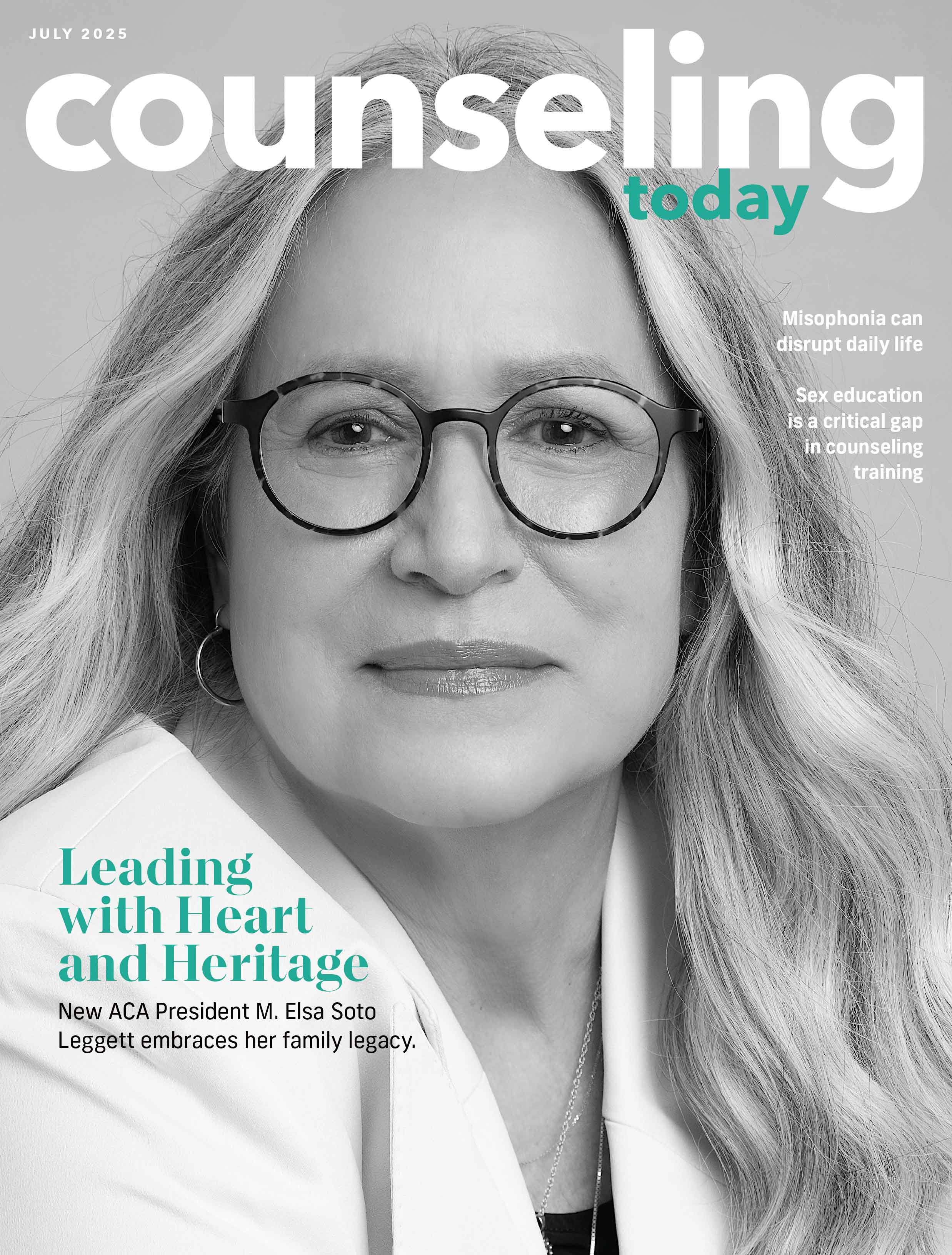Counseling after brain injury: Do’s and don’ts
By Bethany Bray
May 2022

Traumatic brain injury (TBI) is complicated.
Counseling practitioners may work with brain injury survivors who struggle with impulsivity, anger, despair, personality changes, memory loss, language or cognitive difficulties and a range of other symptoms. Not only do post-injury symptoms and recovery differ from person to person but the way these challenges dovetail with their mental health, relationships and overall wellness also varies.
Here are 12 important do’s and don’ts for mental health practitioners to keep in mind when counseling clients who have experienced a brain injury:
1) Do devote a lot of time to listening. One of the most important and beneficial things a counselor can offer a brain injury survivor is empathic and nonjudgmental listening. Having a space to talk about what they’re going through and struggling with and what they need without feeling like a burden can make a world of difference for these clients, says Herman Lukow, a licensed professional counselor (LPC) and licensed marriage and family therapist who spent three years as a postdoctoral fellow researching TBI at Virginia Commonwealth University’s Traumatic Brain Injury Model System program.
2) Don’t equate struggle with resistance. What might seem to be resistant behavior in this client population is often not intentional. They may miss sessions or be hard to contact, but it’s more likely to be caused by the memory and cognitive challenges they live with (e.g., confusing what day it is) rather than resistance, Lukow says.
3) Do be comfortable with silence in counseling sessions. Brain injury survivors may struggle with speaking or finding the right words to express themselves. Practitioners need to resist the urge to fill periods of silence, and they may also need to get creative to find other nonverbal methods or adaptive tools to communicate with these clients, notes Hillel Goldstein, an LPC with a private counseling practice embedded within the Brain Injury Foundation of St. Louis.
4) Don’t go it alone. Counselors can best treat these clients by collaborating, co-treating and consulting with professionals from a range of other disciplines who have expertise in helping brain injury survivors, including speech and language pathologists, occupational therapists, rehabilitation specialists and others, says Goldstein.
5) Do adjust your pace and expectations of progress. The therapeutic expectations, outcomes and what can be counted as a “success” will vary with clients who are TBI survivors, notes Michelle Bradham-Cousar, a licensed mental health counselor and certified rehabilitation counselor who recently completed a doctoral dissertation on counseling clients with TBI. The benchmarks or signs that counselors may associate with improvement or growth in clients may not be apparent — or appropriate — with clients who have experienced brain injury.
6) Don’t be a cheerleader. Life after a brain injury is hard, and survivors may feel that conversations in counseling only emphasize what they’ve lost, says Lukow. A constant stream of positivity or messages such as “you’ll get through this” from a counselor may turn these clients off; instead, they need honesty from a practitioner and validation that what they’re going through is rough.
7) Do ask clients if they’ve ever had a brain injury or related issues such as falls, sports injuries or loss of consciousness. Clients may not disclose past brain injury or realize that it can be connected to their mental health or presenting concern, so it’s important to ask at intake. It’s equally important for counselors to realize that a past brain injury — even if a client doesn’t think it was serious — can lead to or exacerbate mental health symptoms, Lukow adds.
8) Don’t forget these clients’ loved ones and caretakers. The mental and emotional burden that comes with caring for a brain injury survivor is heavy, yet caretakers often put themselves last, Goldstein notes. The loved ones of TBI survivors can also benefit from therapy, particularly the supporting environment that group counseling can provide.
9) Do dig deep into your counseling toolbox. The crux of what brain injury survivors need in counseling is help dealing with loss and change, says Lukow. And counselors already have an arsenal of tools and methods to help in this realm, from cognitive behavior therapy to the therapeutic relationship itself.
10) Don’t think of life after brain injury only in terms of loss. Post-injury recovery is also an opportunity to gain new skills and find new ways of doing things. A client may not be able to work in a job or field they used to, for example, but a counselor can help them reframe this loss as a chance to look for a new occupation that fits with the skills they do have, notes Bradham-Cousar.
11) Do consider this as a specialty. There are not many professional counselors who specialize in psychotherapy for brain injury, but it’s an important and much-needed expertise, says Goldstein. It could be a good fit for counselors who are interested in this client population or who thrive working in multidisciplinary teams.
12) Don’t assume that recovery ceases within a few years of a brain injury. Survivors can still make gains with emotional, social and psychological challenges long after — even decades after — brain injury, says Lukow, especially when supported by helping professionals who provide patient, empathic care.
Read more on counseling clients who have experienced a brain injury in an in-depth feature article in Counseling Today’s June magazine.
Bethany Bray is a senior writer and social media coordinator for Counseling Today. Contact her at bbray@counseling.org.
The views expressed in Counseling Today are those of the authors and contributors and may not reflect the official policies or positions of the editors or the American Counseling Association.


